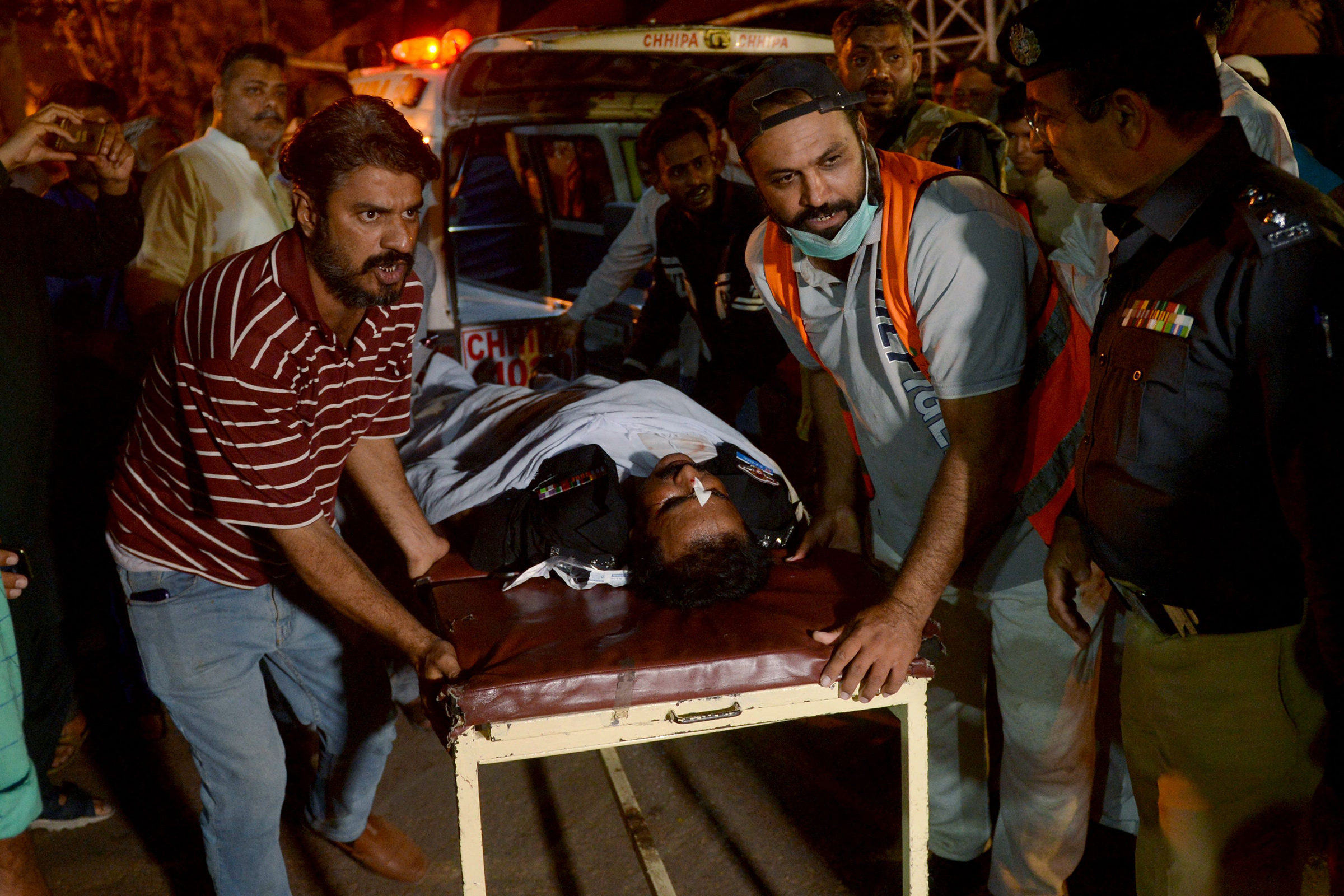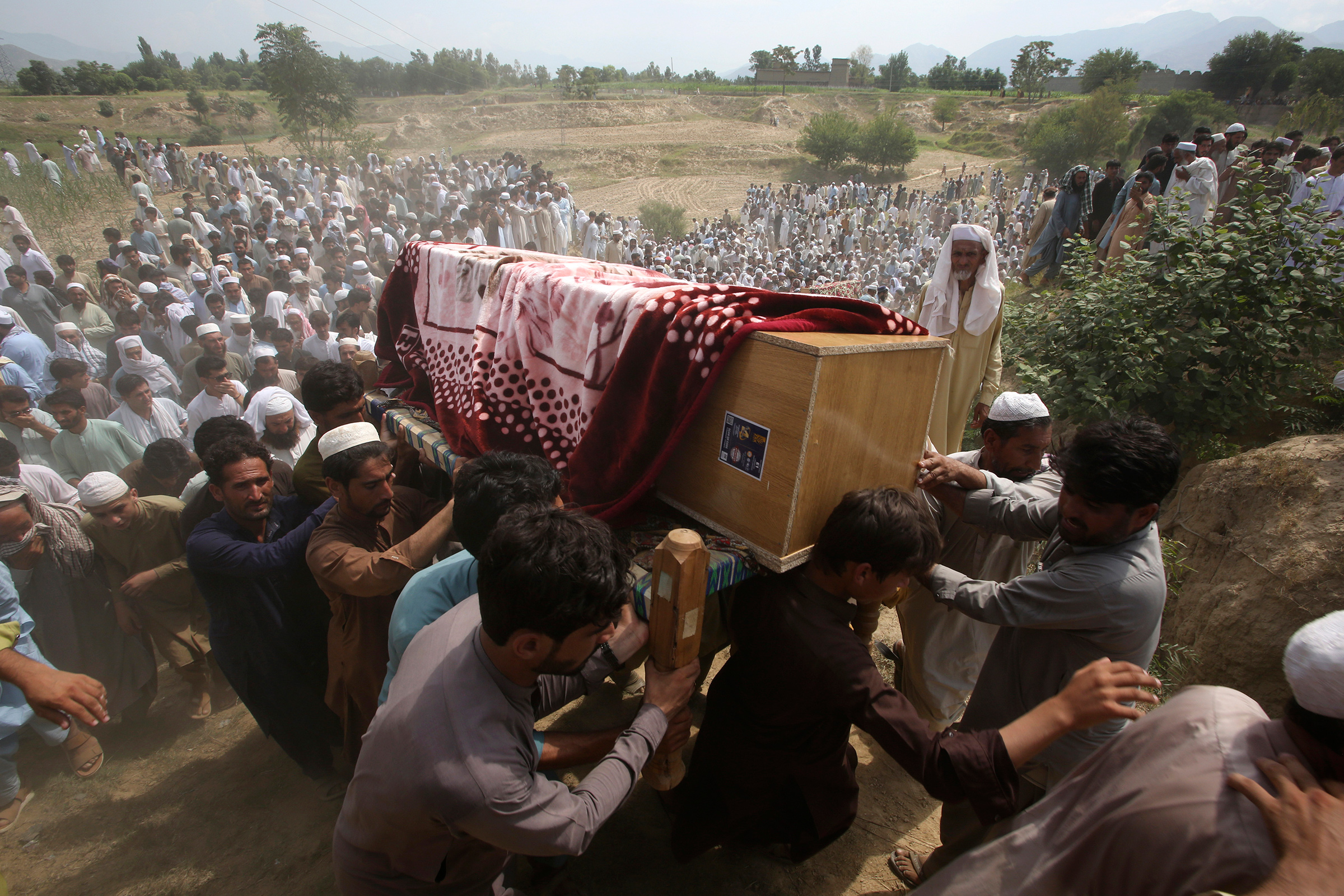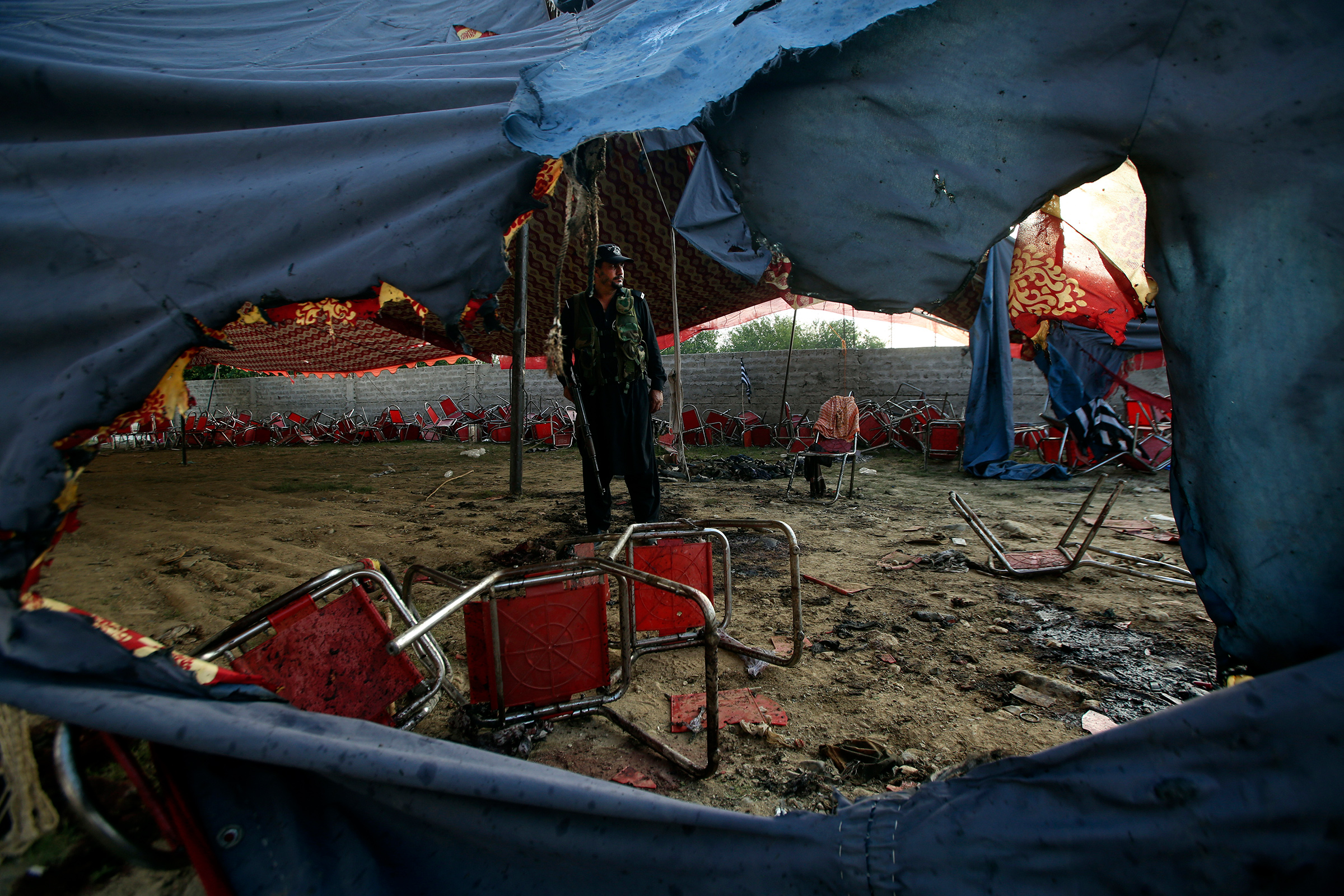Sunday’s suicide attack in Pakistan’s northwestern Bajaur district, which left at least 56 people dead and wounded nearly 200, is the latest reminder of the enduring terrorist threat that plagues the nuclear-armed country of 220 million people. Terror attacks have surged in Pakistan since the Taliban’s return to power in neighboring Afghanistan; in the current year, at least 682 people have been killed in 232 attacks so far.
The Islamic State Khorasan (ISKP), an affiliate of Islamic State, claimed responsibility for the bombing that ripped through the convention of Jamiat Ulema-e-Islam (JUI), an Islamist political party that is part of Pakistan’s coalition government led by Prime Minister Shahbaz Sharif of the center-right Pakistan Muslim League. Other attacks over the last two years have been claimed by the Pakistani Taliban, or Tehrik-i-Taliban Pakistan (TTP), and their offshoots. Ironically, the JUI is close to the TTP in ideology but its willingness to operate within the constitutional-democratic process has resulted in it being labeled “hypocrites” by Islamic State.
Pakistan has faced terror attacks from one group or another since the late 1990s, when local veterans of the U.S.-backed mujahideen in Afghanistan fighting the Soviet Union during the 1980s turned their attention to other issues and causes closer to home. The government’s approach has ever since then been to work with some jihadis but spurn others.

As Hillary Clinton famously warned Pakistani leaders 13 years ago, “You can't keep snakes in your backyard and expect them only to bite your neighbors." Even after ostensibly becoming an American ally in the Global War on Terror in the aftermath of 9/11, Pakistan never seriously disarmed all jihadi groups operating from its territory.
The human toll of Pakistan's approach has been immense. Some 16,225 terror attacks have been reported in Pakistan since 2000, resulting in 66,601 deaths, according to the South Asia Terrorism Portal, a website that tracks terror attacks across the region.
Groups such as the Afghan Taliban have enjoyed active Pakistani government support over the years, notwithstanding the militants’ longstanding ties with Al-Qaeda. That’s because the country’s all-powerful military saw them as allies in ensuring that Pakistan maintained greater influence than India (which many Pakistanis see as their enemy and rival) in Afghanistan after the U.S. withdrawal.
Read More: Far From Home
At the same time, Pakistani authorities have been severe with international terror groups, such as Al-Qaeda and Islamic State, as well as violent groups that engage in sectarian attacks (on the country’s minority Shia Muslims, for example) or wage war against Pakistani authorities.

Pakistani officials might make distinctions between various categories of jihadis, but the militants do not always see things from the same lens. The various groups might disagree over fine points of theology, and over the means and extent of their ideal Islamic state, but they operate in an ecosystem that facilitates cooperation. Individuals often cross over from one group to another and groups transform, mutate, and morph—but their members’ commitment to jihad endures.
The discovery of Al-Qaeda leader, Osama bin Laden, in Pakistan’s garrison town of Abbottabad before he was killed in 2011 in a U.S. targeted operation is a glaring example of the effectiveness of Pakistan’s jihadi ecosystem. Pakistan’s government supported the U.S. in apprehending other Al-Qaeda leaders between 2001 and 2011, but bin Laden managed to escape official scrutiny for years. In the absence of official acceptance, that could only have been possible with support from jihadi groups that were not on the government’s priority list as targets.
Under former Prime Minister Imran Khan, authorities reached a ceasefire agreement with the TTP. But the deal broke down in November, after the TTP accused the military of attacking its men. The government that replaced Khan’s refused to accommodate the TTP’s demands about implementing Islamic rule in districts bordering Afghanistan, and has blamed it for terror attacks claimed by its various offshoots. Since then, TTP has renewed attacks across Pakistan.
Pakistan’s military leaders have for years promised a serious counterterrorism plan that targets all violent extremist groups, without distinction, but has yet to implement it. Unless it does so, new offshoots and breakaway groups of existing jihadi movements will continue to emerge with variations in emphasis and targets, and attacks like the latest one will continue at regular intervals.
More Must-Reads From TIME
- The 100 Most Influential People of 2024
- Coco Gauff Is Playing for Herself Now
- Scenes From Pro-Palestinian Encampments Across U.S. Universities
- 6 Compliments That Land Every Time
- If You're Dating Right Now , You're Brave: Column
- The AI That Could Heal a Divided Internet
- Fallout Is a Brilliant Model for the Future of Video Game Adaptations
- Want Weekly Recs on What to Watch, Read, and More? Sign Up for Worth Your Time
Contact us at letters@time.com
